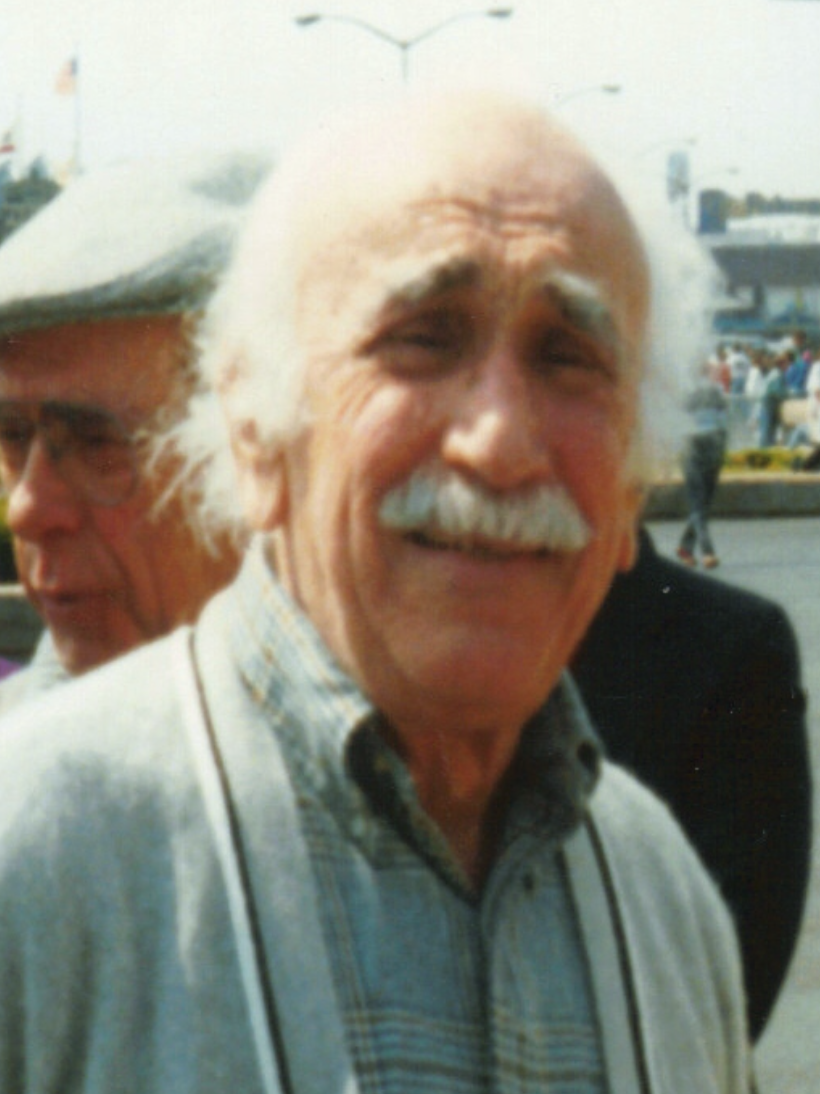
For over 75 years, Dr. Irvin Max Borish made monumental contributions to optometry and clinical science. His passion for expanding the scope of optometry, improving eye care, and advancing clinical science serves as a reminder to all of us that one person can make a huge difference. To read his biography, written by Kenneth Polse in Optometry and Vision Science from 2007 click here.
There follows his Eulogy delivered by Dr. William J. “Joe” Benjamin at his memorial service on Sunday March 11th at the Edgewater Pointes Estates, Florida
EULOGY for Dr. Irvin M. Borish
Sunday, March 11, 2012
Edgewater Pointe Estates
Boca Raton, Florida
It was a short 28 years ago when I first met Irv Borish. Not long after, my wife and I accompanied him and Bea on a trip to Britain, where we happened upon a house in which had lived Charles Dickens. You will all recognize the phrase in Dickens’ book, A Tale of Two Cities, that began, “It was the best of times, it was the worst of times, …” I don’t have to remind this audience that Irv Borish never saw things as the worst of times. He had gone through such a period in his youth but never spoke about it in that fashion. He always saw the opportunity to improve things. He envisioned and engendered only the best of times.
A young Irv Borish took from Charles Sheard an interest in develop-ing Optometry as a learned profession. This interest continued with the cooperation of Glenn Fry at Ohio State University and others such as Norm Haffner in New York. It was 1984 when I was assigned a room across the hall from Irv. Nev-er in my lifetime will such a lucky event again occur. The assignment was made by my Dean, Bill Baldwin, and I now more than suspect a shrewd calculation in that selection. Thus situated, I saw how Irv op-erated; how he prepared a person to take on an idea that he introduc-ed. He would often start with a story that had a meaning related to the conclusion that he later wanted the person to reach. Then he would wait until the idea took hold. He waited sometimes for months, even years. He waited so long that the person would eventually lose track of where the idea came from, and began to think that he, the person, had thought of the idea himself!
Irv didn’t care that the idea was not attributed to Irv. Irv just wanted that person to take on the idea. He delighted in creating a convert who believed that the idea was that of the convert – not Irv’s! In my estima-tion, this is why Irv was so successful in getting his ideas considered and accepted. He didn’t care so much to take credit for an idea. He didn’t push to change a person’s opinion immediately. He waited, and he let nature take its course. He’d rather have converts who felt that they had conceived of the ideas, themselves, and who then went out to spread the ideas by themselves. On an even more personal note, as I was a young faculty member, Irv had my back, and he afforded me opportunities if I could but just grasp them. Some of them I did, and others … well, I tried! Irv told me that he had a daughter, Fran, and that Sarita was like a second dau-ghter, but that he had never had a son. I believe he thought of me like a son that he never had.
Before coming here today, I received messages from all over the world. It seems like the entire faculty of the UAB School of Optometry sent me emails, as did the membership of the International Society of Contact Lens Specialists, of which Irv was a member; Dr. Harold Davis of Chicago; Dr. John Classe’ of Birmingham; Maria Voce, our coordinator of Clinical Eye Research at UAB; and Ann Goodrich, my assistant at the University of Houston, who now resides in Dripping Springs, Texas. These are but a smattering of how far and wide the Borish influence is felt. They wish to convey their deepest sympathy, and to Irv, if he is watching, and I think he is, their final salutations. It is Irv’s great legacy to have passed his knowledge to all eye care practitioners, and his philosophy to many. Most of those who receiv-ed fortified doses of his philosophy are in attendance today. You are the ones who will scatter his legacy forward and shall in his honor dedicate yourselves to continuing his great task. He fostered our abil-ity to do so over a lifetime of 99 years, and gave us the full measure of his devotion. This is, the far, far better thing that he had done, as Dickens might say, that prepared us for that day, 8 days ago, when he departed to a far, far better place than even he had known.
Dr. William J. “Joe” Benjamin – Editor, Borish’s Clinical Refraction, University of Alabama at Birmingham School of Optometry
In lieu of flowers, per the request of Dr. Borish and his family, memorial contributions may be made to: American Optometric Foundation, 6110 Executive Blvd., Suite 506, Rockville, MD 20852, or Borish Center for Ophthalmic Research, Indiana University Foundation, P.O. Box 500, Bloomington, IN 47402, or Irvin M. Borish Chair in Optometry, University of Houston, College of Optometry, 505 J. Davis Armistead Building, Houston, Texas 77204